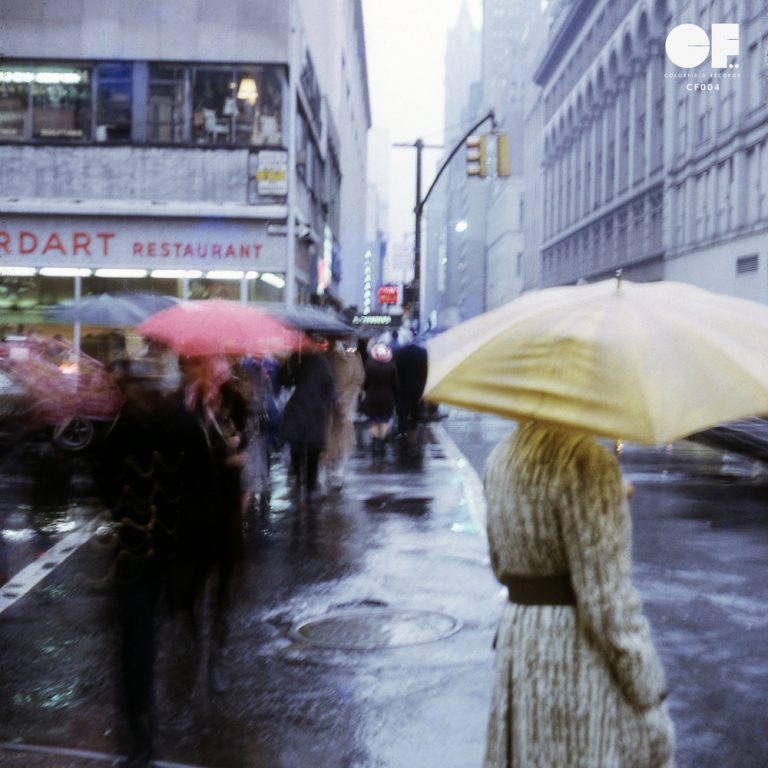“Sonic interest is as important as harmony / work fast.” That’s part of Colorfield Records’ guidelines to musicians entering their own Lucy’s Meat Market Studios, and will have been the advice given to Benny Bock as he went about the creation of his debut album, Vanishing Act. The LA record label run by Pete Min and Todd Dahlhoff thrives in the creation of music that doesn’t live in intention, but more exploring.
After working with The Weeknd on his latest album Dawn FM, Bock – an Oakland keyboardist, composer, producer, and sound designer – sounds at ease on his debut, creating an album that enjoys sinking into the ground, taking in the strange landscapes and nestling into comfortable areas.
For a record that touches on a variety of genres – jazz, classical, electronic, folk – Vanishing Act is ambient at its heart. This is music that never quite takes the spotlight, and sounds like it should accompany something else; in another world the tracks here could be a part of a sci-fi film soundtrack. “Windmills”, with its gentle rustle of percussion and crystalline chimes, sounds like an eerie and sun-soaked alien landscape while “Eight Below Zero” (the title a reference to the classic Sonny Boy Williamson song “Nine Below Zero”) is much the same as synths and pedal steels merge to curious effect. Equally, the gloomy “Solid Air” is well suited for a rain-soaked and dreary city scene, its brushed drums like rain on the pavements.
Vanishing Act’s best moments, however, are those that sound like they are taking your attention. The opening trio of tracks are its best offerings. “Erwin’s Garden” (named after jazz pianist Erwin Helfer) is surprisingly wonderful, Bock’s jazzy piano figures not unlike Tom Waits’ “Christmas Card From a Hooker in Minneapolis” with some extra sheen and fuzzy strings cozying up alongside the piano chords. The strings (courtesy of Daphne Chen) reappear on “Dynamo” alongside swallowing synths and jittery drum machines; when the percolating pizzicato takes the lead midway through it’s hard for your attention not to be piqued.
The title track puts those above mentioned studio guidelines to work, the clack of the keys as much an important sound as the notes played. Next to the watery and borderline funky bass, the whole thing feels more like an exercise in mood and feel as opposed to getting to any kind of predetermined end point.
And to its benefit, Vanishing Act rarely sounds like an album out for the destination, more attention being orientated to the journey. The downside is that after an impressionable start, the album’s ability to keep you engaged wanes in the second half. “Ten Thousand Fragments” is pleasant but inoffensive and mostly unmemorable, while the plodding and dewy “Little Hill” features some swells in the music, but mostly there’s little to say of it. Were it not for the full-on warm AM buzz and ambient drone of closing track “Bathed In Light” (which feels alive and like a song from an entirely different record), then Vanishing Act would peter out to the indifference of the listener.
“Don’t think too much, the subconscious is sometimes more interesting / get out of one’s comfort zone, play instruments one normally doesn’t play.” That’s more advice from Colorfield Records’ guidelines, and to Bock’s credit, he stayed attuned to the stipulations (at the very least evidenced by the some 20+ instruments he plays across the album). Vanishing Act stays true to its name in the way it seems to disappear and fizzle away before your ears without you expressly noticing. More moments that feel alive and willing to hook in the listener would have been welcome, but the album is still a passingly pleasing debut that focuses on exploration. Bock read the guidelines and came out with an album that might lack enough personality to linger in mind for long, but it undeniably stays true to its – and the studio’s – aims.

